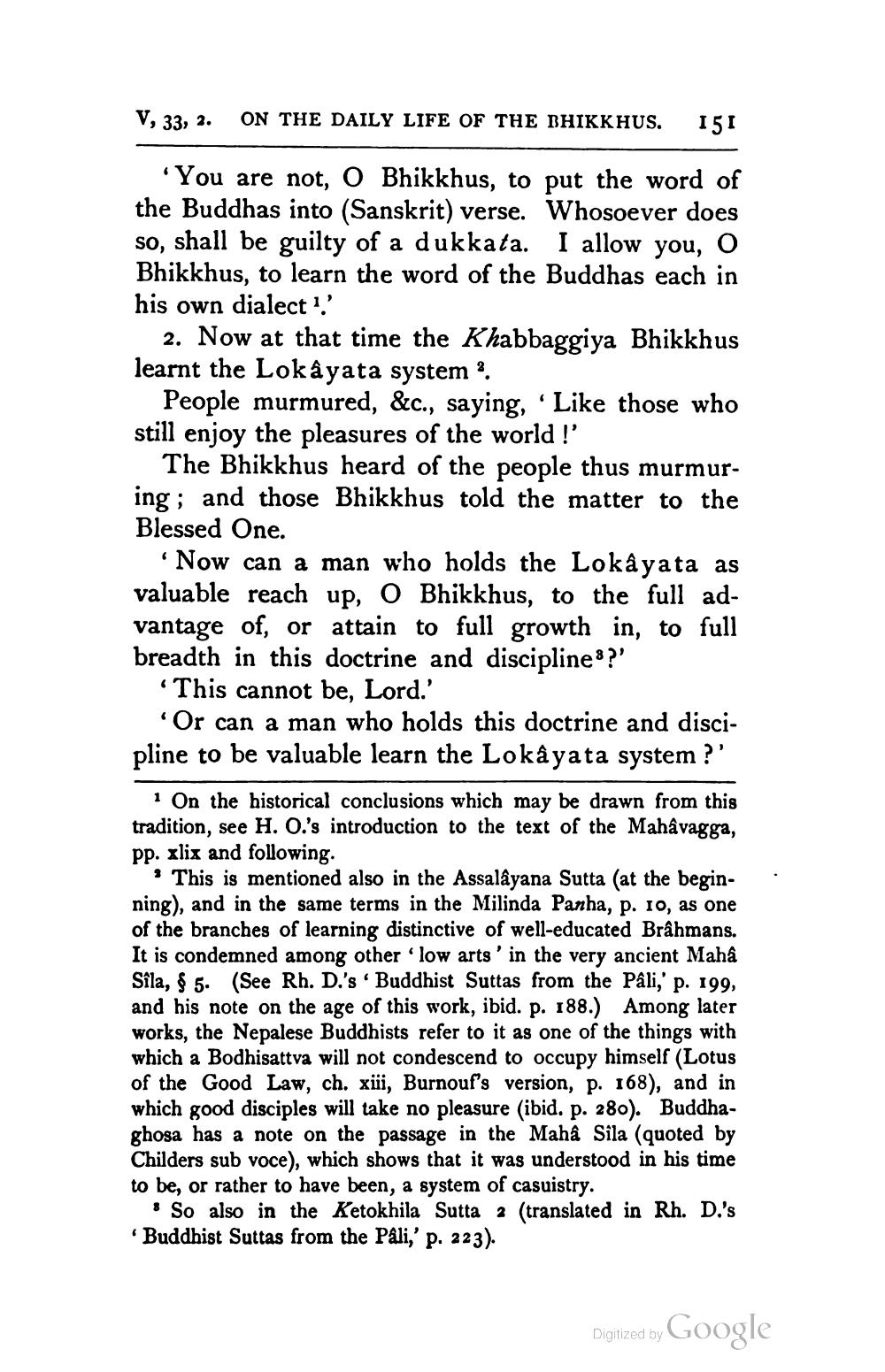________________
V, 33, 2. ON THE DAILY LIFE OF THE BHIKKHUS.
151
*You are not, O Bhikkhus, to put the word of the Buddhas into (Sanskrit) verse. Whosoever does so, shall be guilty of a dukkata. I allow you, o Bhikkhus, to learn the word of the Buddhas each in his own dialect 1.'
2. Now at that time the Khabbaggiya Bhikkhus learnt the Lokayata system?
People murmured, &c., saying, 'Like those who still enjoy the pleasures of the world !
The Bhikkhus heard of the people thus murmuring; and those Bhikkhus told the matter to the Blessed One.
Now can a man who holds the Lokayata as valuable reach up, O Bhikkhus, to the full advantage of, or attain to full growth in, to full breadth in this doctrine and disciplines?' *This cannot be, Lord.'
Or can a man who holds this doctrine and discipline to be valuable learn the Lokayata system?'
1 On the historical conclusions which may be drawn from this tradition, see H. O.'s introduction to the text of the Mahavagga, pp. xlix and following.
: This is mentioned also in the Assalâyana Sutta (at the beginning), and in the same terms in the Milinda Panha, p. 10, as one of the branches of learning distinctive of well-educated Brâhmans. It is condemned among other low arts' in the very ancient Maha Sila, $ 5. (See Rh. D.'s Buddhist Suttas from the Pali,' p. 199, and his note on the age of this work, ibid. p. 188.) Among later works, the Nepalese Buddhists refer to it as one of the things with which a Bodhisattva will not condescend to occupy himself (Lotus of the Good Law, ch. xii, Burnouf's version, p. 168), and in which good disciples will take no pleasure (ibid. p. 280). Buddhaghosa has a note on the passage in the Maha Sila (quoted by Childers sub voce), which shows that it was understood in his time to be, or rather to have been, a system of casuistry.
So also in the Ketokhila Sutta 2 (translated in Rh. D.'s Buddhist Suttas from the Pali,' p. 223).
Digilzed by Google




